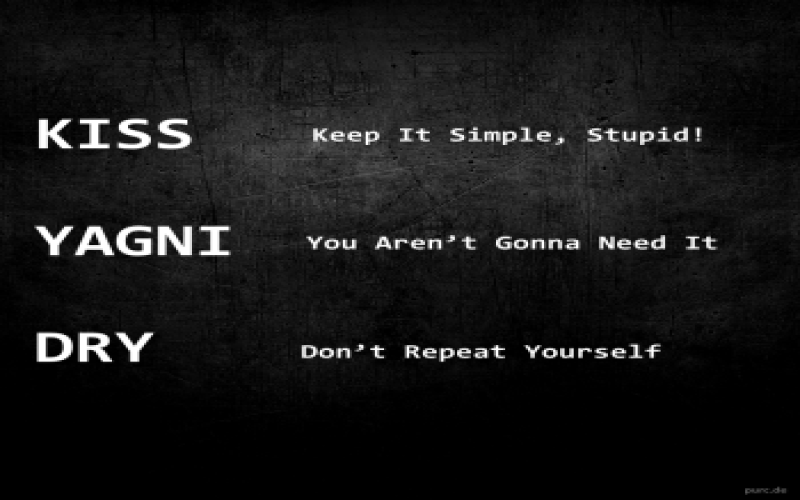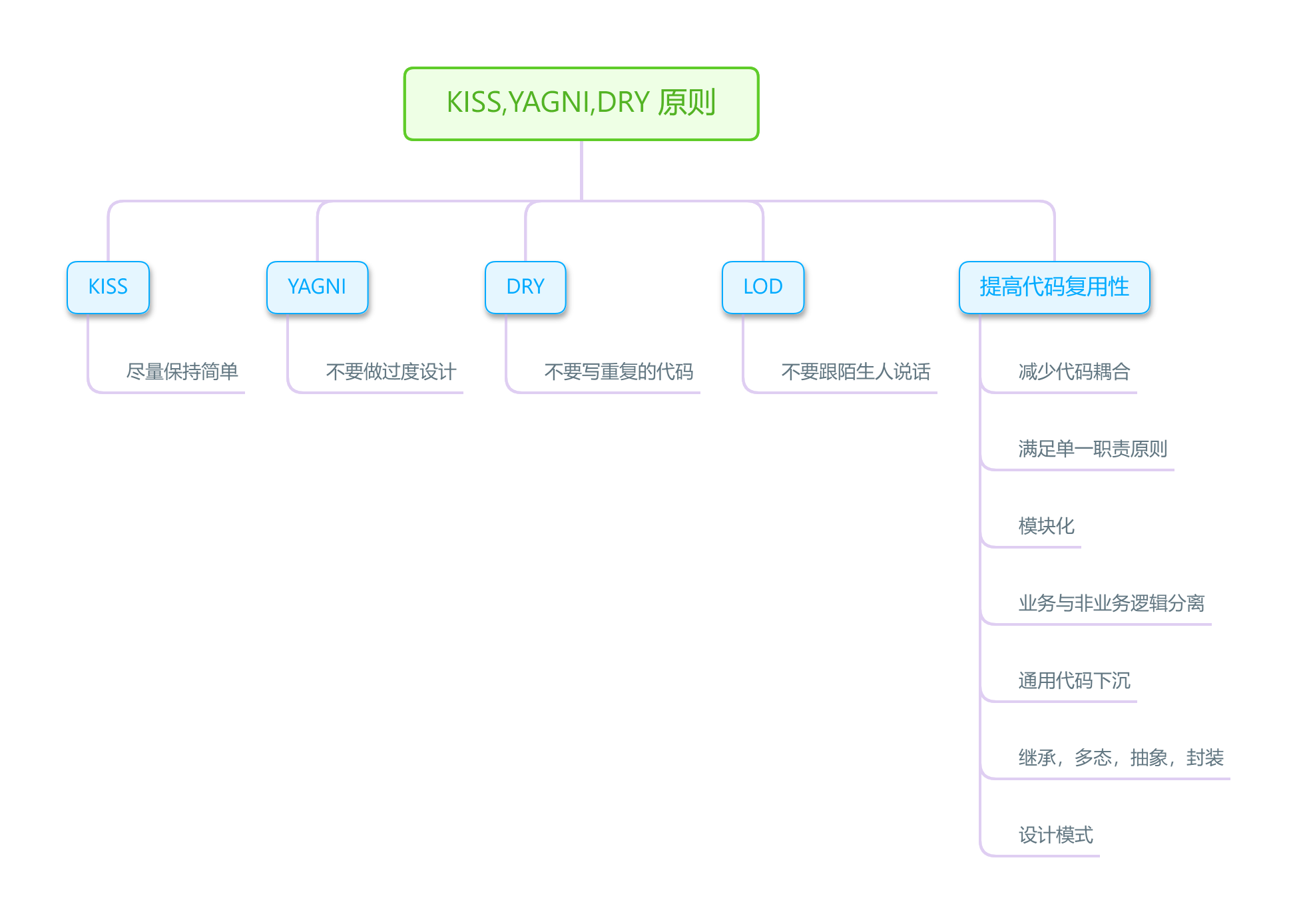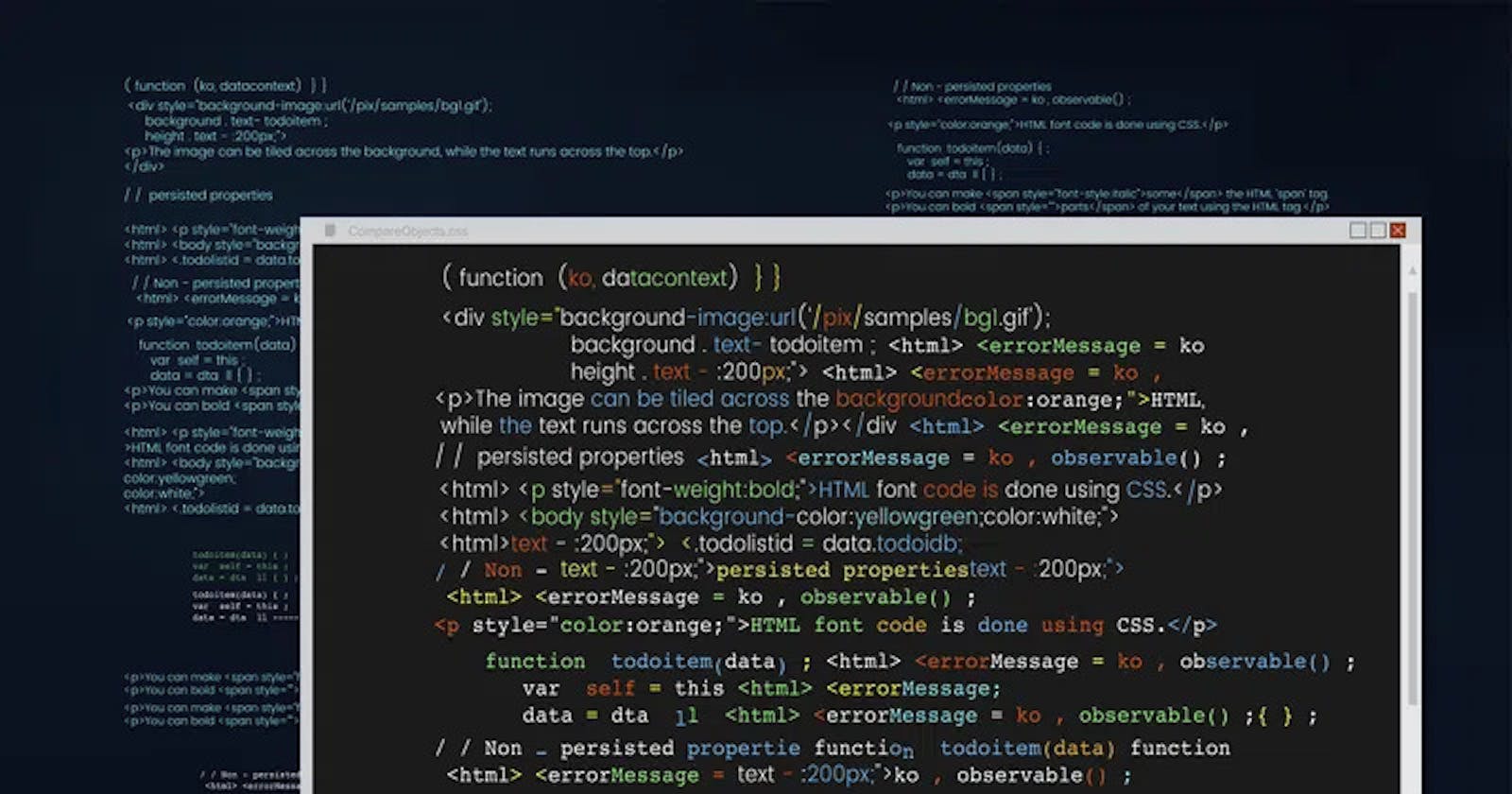
The pyramid of software development principles Bartosz Krajka
Software design principles are like the compass that guides developers in crafting functional but also maintainable, adaptable, and user-friendly software. These principles, including SOLID, KISS, DRY, YAGNI, PoLA, and the Encapsulation Principle, provide a solid foundation for creating high-quality software.

KISS, DRY, and YAGNI Principles
Conclusion. In conclusion, the KISS, YAGNI, and DRY principles provide a set of guidelines for simplifying your code. By following these principles, you can create code that is easier to understand, easier to maintain, and easier to extend in the long run. While these principles can be challenging to apply at first, they can help you write code.

Software Development Principles DRY, KISS, & YAGNI 09 YouTube
KISS is an acronym for the design principle "Keep it simple, Stupid!". SOLID : The principles when applied together intends to make it more likely that a programmer will create a system that is easy to maintain and extend over time

دیلگون سه اصل KISS , YAGNI , DRY چیست؟
The DRY ("Don't repeat yourself"), YAGNI ("You're not gonna need it"), and KISS ("Keep it simple, stupid") principles are three we should all keep in mind when we code. These three acronyms.

YAGNI, KISS, DRY or how do not overengineering CODE REVIEW
The KISS, DRY, and YAGNI principles are widely recognized and adopted by experienced developers around the world to help them write clean and maintainable code. In this article, we will explain what these principles are, why they matter, and how you can implement the things learned from this article into your projects.
Building Better Code DRY, YAGNI, and KISS Principles Explained by Tanmay Sadamast May, 2023
DRY is a principle aimed at reducing repetition in software patterns. Coined by Andy Hunt and Dave Thomas in their book "The Pragmatic Programmer," DRY emphasises the importance of avoiding.

DRY, YAGNI, KISS & SINE Top 4 Dev Principles Know Them?
We can write clean code by following a set of guidelines known as Software Design Principles. Software Design Principles is a set of guidelines proven to work over the years. Avoid code repetitions (DRY). Keep the code simple (KISS). Each module should do only one thing (Curly's law). Avoid unnecessary functionalities (YAGNI) and preoptimization (the root of all evil).

KISS, DRY и YAGNI. Защо ги обичат програмистите?
13 In this article, I am going to explore software design principles and their benefits and why design principles are useful for us and how to implement them in our daily programming. We will see DRY, KISS, and YAGNI software design principles. We will discuss - What software design principles are. What DRY, KISS, and YAGNI are. Why we need them.

KISS, DRY, YAGNI and More. The 7 Acronyms Every Developer Should Know My Programming Blog
Avoid duplication ( DRY) Keep the code simple ( KISS) Avoid unnecessary functionalities ( YAGNI) Hide implementation details ( Abstraction) Keep the code extensible ( Extensibility) Make your software modular ( SoC) Prefer composition over inheritance Prefer readability over conciseness Maximize cohesion Give class only one responsibility ( SRP)

DRY, KISS, YAGNI 3 Prinzipien, die auch für's Studium taugen!
Summary. In conclusion, embracing development principles like DRY, KISS, and YAGNI can greatly enhance the efficiency and effectiveness of React projects. By adhering to the "Don't Repeat Yourself" (DRY) principle, code becomes more maintainable through reusability. The "Keep It Simple, Stupid" (KISS) principle promotes user-friendly.

DRY, KISS, and YAGNI to avoid Overengineering Trap
1. DRY - Don't Repeat Yourself DRY refers to code writing methodology. DRY usually refers to code duplication. If we write the same logic more than once, we should "DRY up our code." A common way to DRY up code is to wrap our duplicated logic with a function and replace all places it appears with function calls. Example (with code repetition):

Making use of the DRY, KISS, and YAGNI rules in C Technology4Today
Discover how the DRY, KISS, and YAGNI principles can transform your software development process, drive efficiency, and avoid common pitfalls.

设计模式KISS,YAGNI,DRY,LOD 原则(十三) 空樹之空的博客
Don't' Repeat Yourself (DRY) is a very common acronym used by programmers to denote that software programs are created to automate certain repetitive tasks that humans do not wish to waste time and energy. In case you are repeating the same command line in a coding array, there are methods available to reduce or eliminate the repetition completely.

Principios KISS, DRY y YAGNI ahierro.es
What is DRY, KISS, YAGNI? They are just acronyms of common best practices and best principles to write clean code. In this article, we will discuss what they mean and why they are important. Let's first discuss "why clear code is important" Importance of clean code in software development.

DRY, KISS, YAGNI Code/Drops 27 YouTube
If your country censors them, click Fix to replace them with Google searches. IntroI want to talk today about principles of software engineering. Just like design patterns, they range from useful to YAA (Yet Another Acronym). Usually, there is some guy or group of people who.

Best Practices for Writing JavaScript Code DRY, KISS, and YAGNI
3. YAGNI — You Aren't Gonna Need It. YAGNI encourages developers not to add functionality until it is necessary. This principle helps to keep the codebase manageable and prevents over-engineering. When to use: YAGNI is applicable during the feature planning and development stages. Resist the urge to add features or functionality "just in.